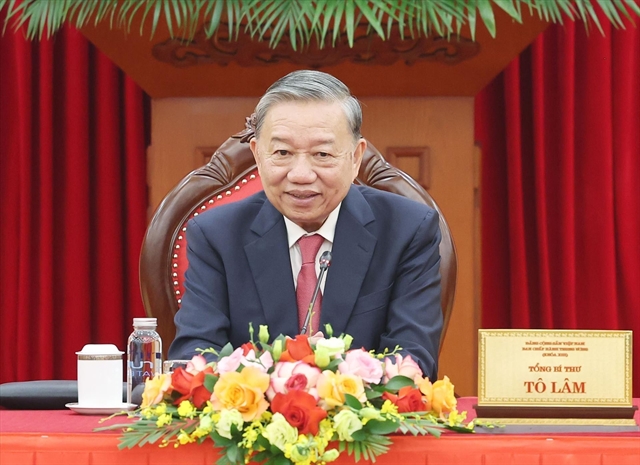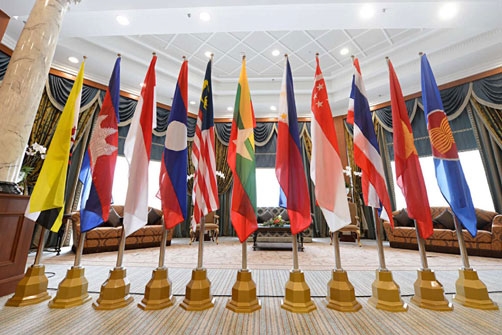 Politics & Law
Politics & Law

ASEAN’s stringent principle of non-interference in other members’ internal business has hindered cooperation efforts to tackle non-traditional security issues in the region, experts said yesterday.
 |
HÀ NỘI — ASEAN’s stringent principle of non-interference in other members’ internal business has hindered cooperation efforts to tackle non-traditional security issues in the region, experts said yesterday.
Against the backdrop of the simmering military tensions in the East Sea (South China Sea) that involve nearly half of the Association of the Southeast Asian Nations’ members, the regional bloc also faced a number of non-traditional security challenges ranging from drug trafficking, migration, infectious diseases, piracy and international terrorism.
These issues were first addressed as internal matters in each country, said political analyst Nghiêm Tuấn Hùng from Việt Nam’s Institute of World Economics and Politics at a two-day conference on the issue jointly held yesterday by the Vietnam Academy of Social Sciences and Germany’s Konrad Adenauer Stiftung.
“It was not until the economic crisis in 1997, followed by the 2003 SARS and the Avian flu epidemics, did ASEAN countries realise and strengthen regional co-operation to address non-military security issues,” Hùng said.
Singaporean Prime Minister Lee Hsien Loong’s recent call on all 10 ASEAN members to join hands in fighting the Zika virus, which is raging in Singapore and putting neighbours on high alert, was the latest regional co-operation attempt to resolve a non-traditional security menace.
Yet ASEAN’s non-interference principle somehow blocked further multilateral efforts, Hùng said. He cited the Indonesia’s refusal to accept aid from Singapore in addressing its haze hazard—the neighbouring nation severely choked off by the smoke spread from Jakarta’s forest burning to clear land for oil palm plantations.
“Although the principle should be maintained to assure unity and good relations between (ASEAN’s) members, it should be more flexible and not to become an obstacle in addressing non-traditional security threats,” said Assoc Prof Lluc López i Vidal from the Autonomous University of Barcelona.
“In cases of violation of human rights, humanitarian crisis or natural disasters, ASEAN should loosen its principle of non-interference in order to co-operate and solve transboundary issues”. – VNS